
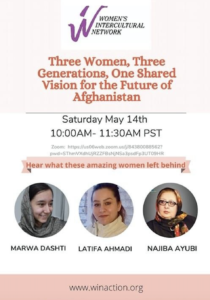
Month: May 2022


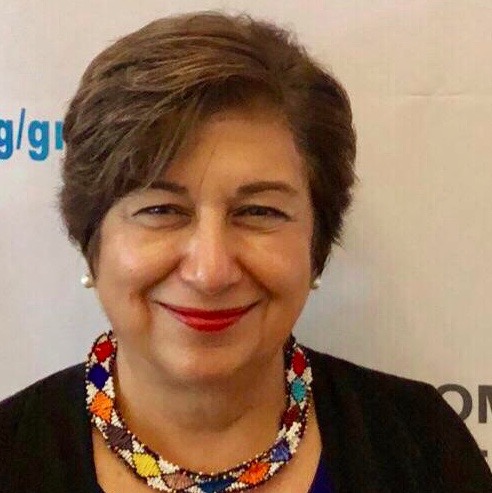
were groundbreaking and therefore ‘historic’ for the UN as it is the first time CSW has recognized the connections between climate change and gender equality and confirmed that all women and girls are disproportionately affected by the impact of climate change such as droughts and floods and other environmental crises, and offer specific actions which the Member States, UN agencies and Civil Society/NGOs can take to ensure resilience, mitigation, and sustainable recovery, especially for all women and girls.
Statement of the CEDAW Committee expressed at the 44th session on August 7, 2009
, on Gender and Climate Change envisioned that “women are not just helpless victims of climate change – they are powerful agents of change and their leadership is critical. “ became a reality by the CSW66 historical Agreed Conclusion.
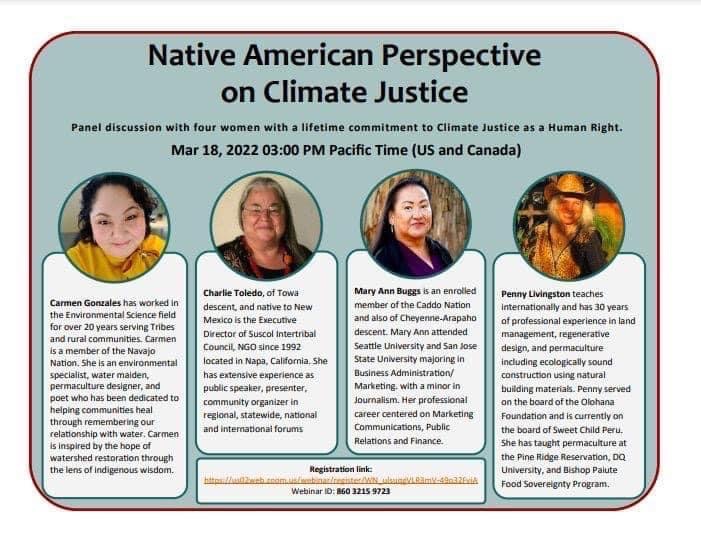
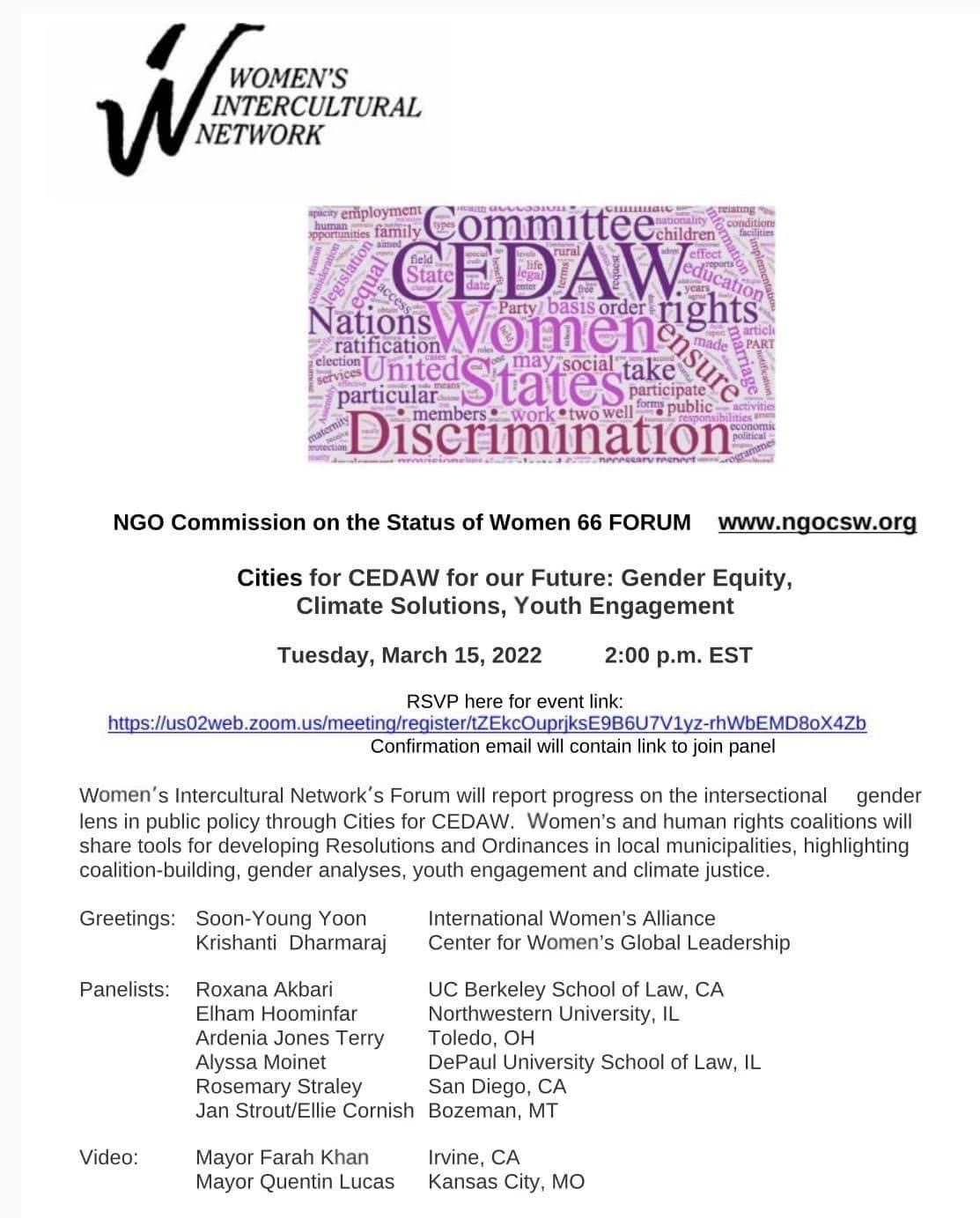
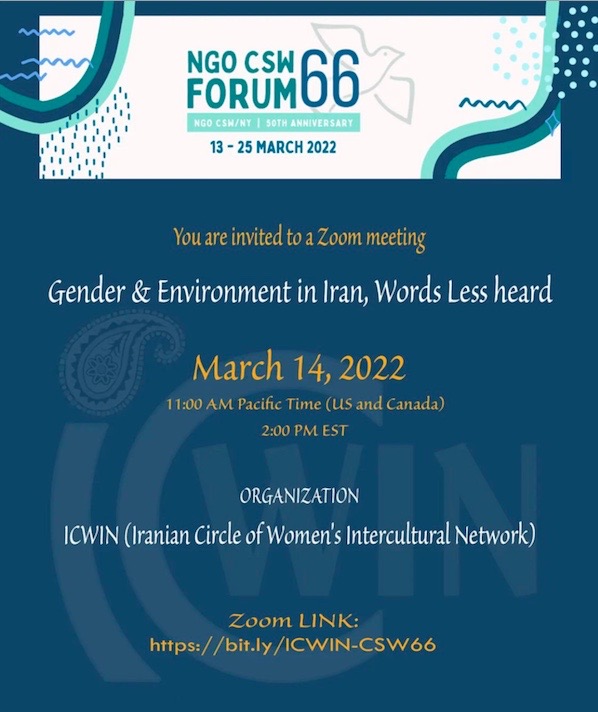
The
Iranian Circle of Women’s Intercultural Network/ ICWIN
presented this panel -the only session on Gender and environment in Iran presented by an NGO. Speakers of the panel :
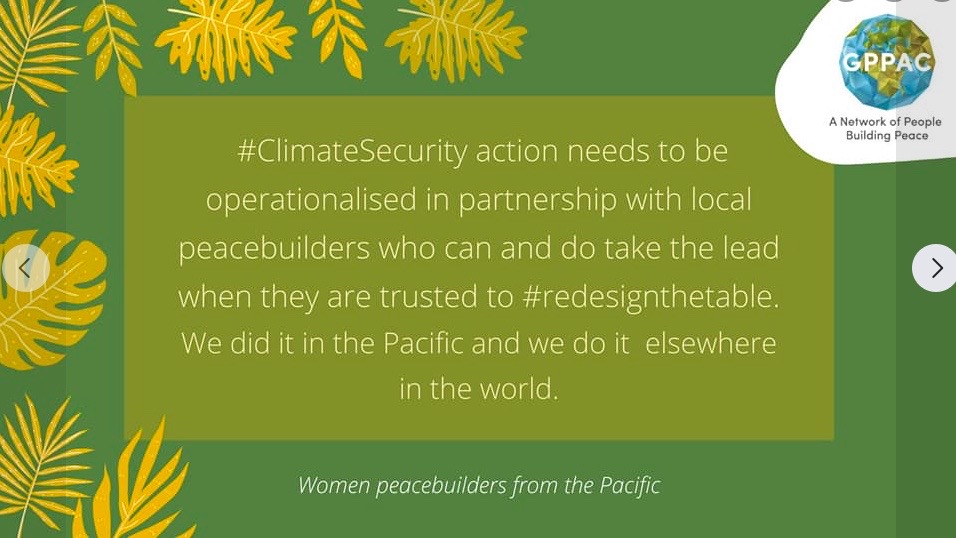
24 March 2022 | 12:30pm-2:00pm EST Women’s Intercultural Network joined with Global Partnership for the Prevention of Armed Conflict (GPPAC), UN Women, Shifting the Power Coalition, and the Australian Mission to co-sponsor A virtual informal discussion on how some of the key recommendations of CSW 66 can be operationalized in practice through existing platforms (i.e., the UNSC and UN Climate and Security Mechanism, the Women, Peace and Security and Humanitarian Action Compact (WPS-HA Compact, etc.)
The conversation was Moderated by Sharon Bhagwan Rolls, GPPAC Pacific Regional Representative & Regional Director – Shifting the Power Coalition and began with Marina Kumskova, GPPAC Senior UN Policy and Advocacy Advisor sharing an overview and key takeaways from the CSW66 Agreed Conclusions.
Given the backdrop of UN Security Council Resolution 2242 (S/RES/2242) recognizing the impacts of climate change and the global nature of health pandemics on the trajectory of conflict, and given the inaugural meeting of the Informal Expert Group on Climate and Security in November 2020, which was followed in February 2021, by the UNSC convening for a high-level open debate on climate and security, governments and civil society recognize the linkage between climate vulnerability and conflict fragility.
In this discussion, global peacebuilding and development experts shared the key takeaways from the CSW discussions and the ways the key commitments can inform peacebuilding and development action. This discussion continued building on the ongoing progress in the development of global policy and finance supporting climate security action, including from an intersectional feminist perspective. References were made to important lessons learned from local peacebuilding networks – through their various entry points – who have been able to consolidate knowledge and expertise on climate and security and systematize information exchange through institutionalized channels of multi-stakeholder action. Noted was UNDP report “What Infrastructures for Peace support Peacebuilding in the context of Fragility and Crisis”.
Speakers included:
Christine Clarke, Ambassador for Women and Girls, the representative of Australia
Kyra Luchtenberg, Peace and Security Analyst, Peace, Security and Humanitarian Section at UN Women
Carolyn Kitione, Shifting the Power Coalition Learning Coordinator
Olha Zaiarna, GPPAC Regional Representative for Eastern Europe, Ukraine
Marion Akiteng, Gender Focal Person at Centre For Conflict Resolution (CECORE), Uganda
Catherine Wong, Policy Specialist – Climate and Security Risk, Crisis Bureau UNDP
Ms. Hayley Keen, Australia’s Mission to the United Nations
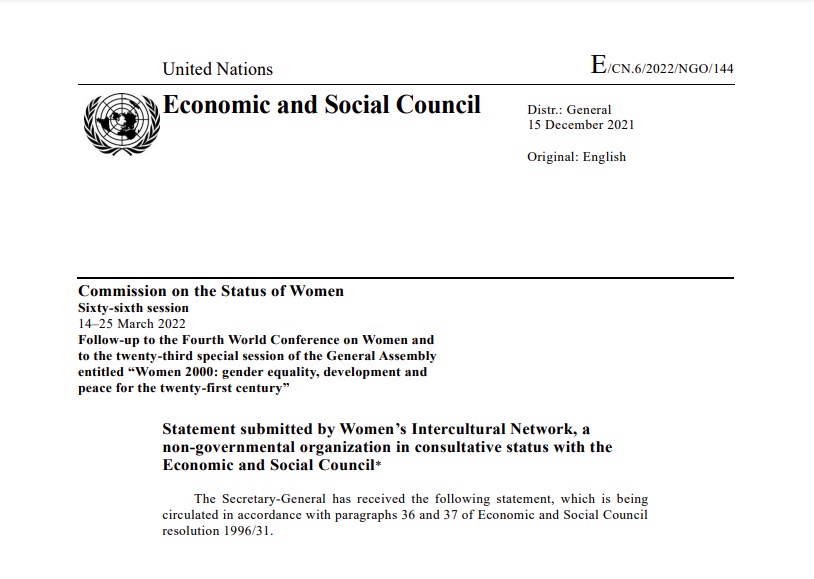
E/CN.6/2022/NGO/144
Agenda 2030 puts gender equality at the core of sustainable and inclusive
development. Realizing gender equality and the empowerment of women and girls
will make a crucial contribution to progress across all the Goals and targets. The
achievement of full human potential and of sustainable development is not possible
if one half of humanity continues to be denied its full human rights and opportunities.
(UNFPA) Gender must be mainstreamed. Sustainable Development Goal 5
recognized gender equality as a fundamental right in itself, and instrumentally
valuable as a necessary foundation for a peaceful, prosperous and sustainable world.
Despite this recognition, equality remains elusive.
The brunt of the dual crises of the COVID-19 global pandemic and the economic
“she-cession” has been shouldered by women, with effects exacerbated along existing
racial, social, and economic lines. These crises intersect with the climate crises to
create a trifecta of vulnerability for the most marginalized. It’s the world’s poorest
and those in vulnerable situations, especially women and girls, who bear the brunt of
environmental, economic, and social impacts. Women and girls face greater health and
safety risks, as water and sanitation systems become compromised and in situations
of scarcity, they take on increased domestic and care work.
Through their experiences as early adopters of holistic and regenerative
agricultural techniques, first responders in crises, entrepreneurs of green energy, and
decision-makers at home, women offer valuable insights and solutions into better
managing the climate’s changes and its risks. Despite this, their collective and
individual lived experience and leadership are often overlooked and undervalued.
Building a sustainable future entails harnessing the knowledge, skills, and leadership
of women in climate action. Because women sit precariously at the intersection of
many daunting social problems including poverty, climate change, and violence, it is
critical that they be safe and empowered to reach their full potential. Gender mainstreaming will accelerate progress across all SDG’s. It’s no wonder then that
women’s leadership is explicitly called for in the preamble to the Paris Accord.
Achieving gender equality and the empowerment of all women and girls in the
context of climate change, environmental and disaster risk reduction policies and
programs is an urgent multilateral and multi-stakeholder endeavor.
UN Women has identified important priorities:
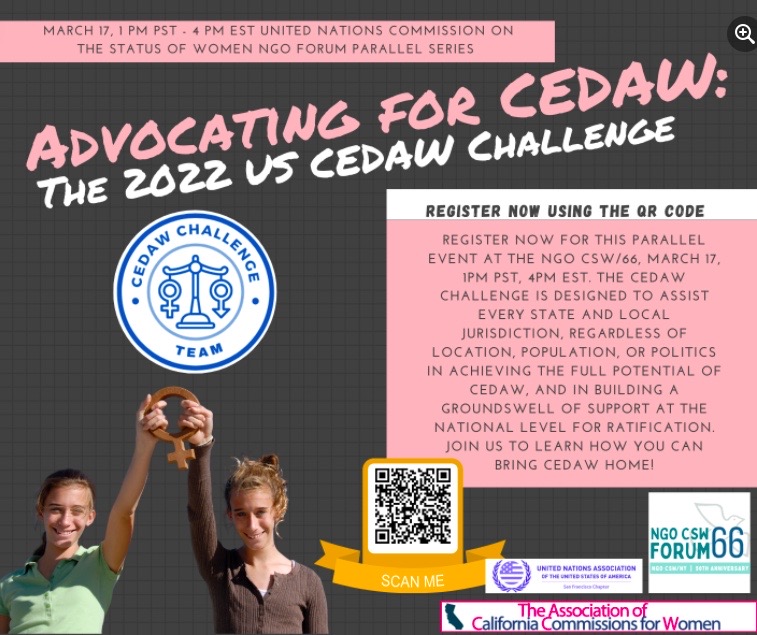
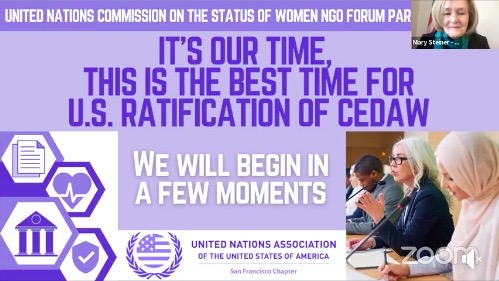

Thanks to UNA San Francisco and the leadership of Mary Steiner for the opportunity given to WIN Cities for CEDAW Campaign to be part of this event. The Ratify Movement is a historic collaboration of leading civil society organizations educating and advocating for the ratification of the UN Convention to Eliminate all Forms of Discrimination Against Women (CEDAW).
24 March 2022 | 12:30pm-2:00pm EST Women’s Intercultural Network joined with Global Partnership for the Prevention of Armed Conflict (GPPAC), UN Women, Shifting the Power Coalition, and the Australian Mission to co-sponsor A virtual informal discussion on how some of the key recommendations of CSW 66 can be operationalized in practice through existing platforms (i.e., the UNSC and UN Climate and Security Mechanism, the Women, Peace and Security and Humanitarian Action Compact (WPS-HA Compact, etc.)
The conversation was Moderated by Sharon Bhagwan Rolls, GPPAC Pacific Regional Representative & Regional Director – Shifting the Power Coalition and began with Marina Kumskova, GPPAC Senior UN Policy and Advocacy Advisor sharing an overview and key takeaways from the CSW66 Agreed Conclusions.
Given the backdrop of UN Security Council Resolution 2242 (S/RES/2242) recognizing the impacts of climate change and the global nature of health pandemics on the trajectory of conflict, and given the inaugural meeting of the Informal Expert Group on Climate and Security in November 2020, which was followed in February 2021, by the UNSC convening for a high-level open debate on climate and security, governments and civil society recognize the linkage between climate vulnerability and conflict fragility.
In this discussion, global peacebuilding and development experts shared the key takeaways from the CSW discussions and the ways the key commitments can inform peacebuilding and development action. This discussion continued building on the ongoing progress in the development of global policy and finance supporting climate security action, including from an intersectional feminist perspective. References were made to important lessons learned from local peacebuilding networks – through their various entry points – who have been able to consolidate knowledge and expertise on climate and security and systematize information exchange through institutionalized channels of multi-stakeholder action. Noted was UNDP report “What Infrastructures for Peace support Peacebuilding in the context of Fragility and Crisis”.
Speakers included:
Christine Clarke, Ambassador for Women and Girls, the representative of Australia
Kyra Luchtenberg, Peace and Security Analyst, Peace, Security and Humanitarian Section at UN Women
Carolyn Kitione, Shifting the Power Coalition Learning Coordinator
Olha Zaiarna, GPPAC Regional Representative for Eastern Europe, Ukraine
Marion Akiteng, Gender Focal Person at Centre For Conflict Resolution (CECORE), Uganda
Catherine Wong, Policy Specialist – Climate and Security Risk, Crisis Bureau UNDP
Ms. Hayley Keen, Australia’s Mission to the United Nations